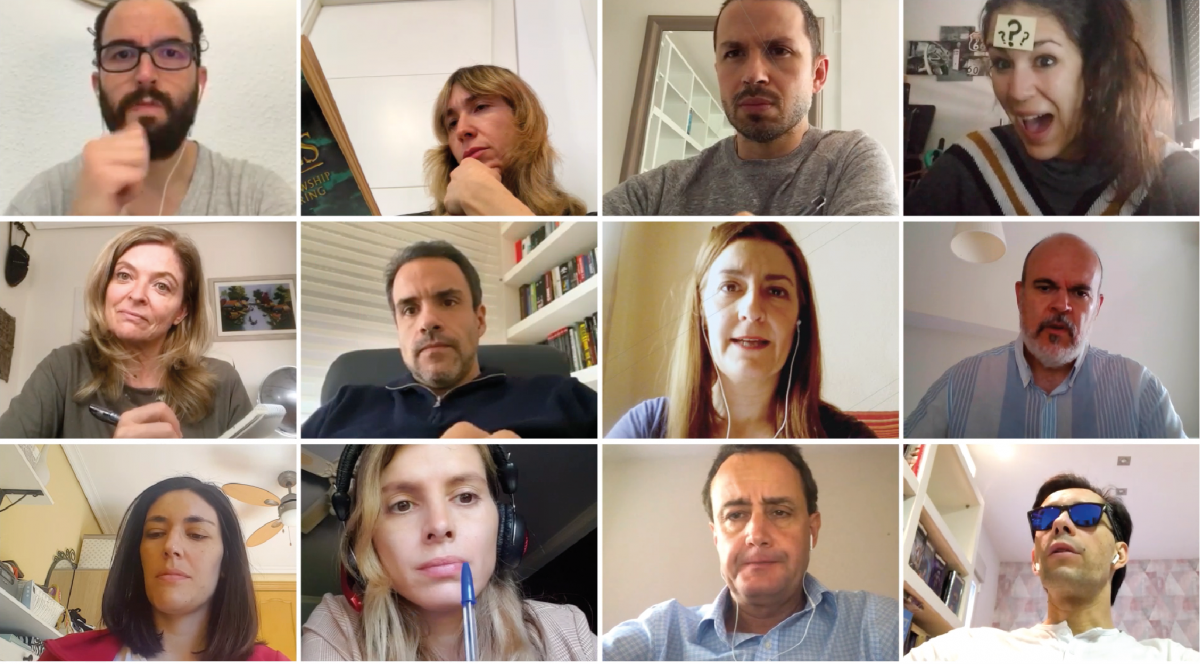Legal hackathons, providing lawyers with a model for a new way of working
Alejandro Sánchez del Campo, 'of counsel' on Intellectual Property and Startups & Open innovation.

“It has been an incredible experience and I highly recommend it. Using agile methodology in an innovation-rich environment shows how there are so many different ways of addressing problems when working with multidisciplinary and geographically diverse teams.” (Sonia)
“Being part of the hackathon exceeded all my expectations. Taking on new legal challenges from an innovative viewpoint, working with colleagues from other offices and in such different areas, yet in close collaboration thanks to new technologies, has been a really positive and rewarding experience”. (Julia)
The views quoted above sum up the general opinions of the 12 members of the Garrigues team who took part in latest Global Legal Hackathon, jointly organized by FT Innovative Lawyers and RSG Consulting. The Hacakthon aimed to foster talent and creativity in the legal industry by finding innovative ways for resolving some of the most pressing legal challenges raised by the global COVID-19 crisis. The last three global legal hackathons have been in-person events, and this year was the first time the event was held completely online.
The response to the call was overwhelming, with more than 2,500 participants from 220 firms and other organisations, located in 70 countries, proposing nearly 300 challenges over the four-week event, which concluded on May 22. The finalist projects can be found at this link. An accusation frequently levelled at the legal sector is that it lacks innovation, but the ideas presented show that things are changing in this regard.
The MyGform project was presented by the Garrigues team, comprising lawyers, engineers, economists, journalists and marketing and design experts. Our basic idea was that, in many situations in a post-COVID world, people will have to provide personal and professional data, such as medical information or symptoms, numbers and dates of coronavirus tests, activities that carry a risk of contagion, movements in recent months, and more. This information will need to be provided, for example, when visiting a client at their office, dealing with service suppliers, collaborating with third parties in projects, and hiring new employees, as well as in more personal and less professional matters, such as staying at a hotel, eating in a restaurant, joining a gym or buying a house.
Our goal was to design a standard mechanism, backed by all legal guarantees, where the person in question retains ownership of the data and has the power to decide what type of data they wish to share and how. In this way, security, flexibility and traceability will be assured, because the solution devised means that you can know exactly to whom the data has been given and when. All the details of MyGform can be found in this presentation and explanatory video.
As the Financial Times article detailing the project explains, transitioning from the design phase to something tangible in a short space of time is no easy task. Fully developing an original idea into a presentation illustrating its main features proved to be a difficult undertaking for lawyers, because it required consensus on all kinds of decisions regarding many aspects that were not our particular speciality, namely app design, analysis and assessment of similar solutions, business model, product name and slogan, usability issues, prototype, messages to include in the explanatory video and a host of other details. We spent far more time on these tasks than on the legal aspects of the project.
Yet all this is precisely what was so rewarding about the challenge: we were working as a team (with the added difficulty of having to do so remotely), using the best tools suited to each task, and, above all, each one of us learned something, gained from the knowledge and input of other colleagues. Garrigues’ Intangibles Department played a significant role in visualizing the progress achieved as we worked. Our CIO was also involved, providing guidance in some of the more technical aspects.
In short, the project allowed us to develop an idea in a controlled environment (a sandbox, to use the latest buzzword) in which we were able to try out new collaborative tools and work applying the precepts of agile methodology and legal design. Learning how to be innovative comes through trying, testing and doing, and hackathons provide the ideal framework for developing the skills and abilities that clients are increasingly demanding from their lawyers.